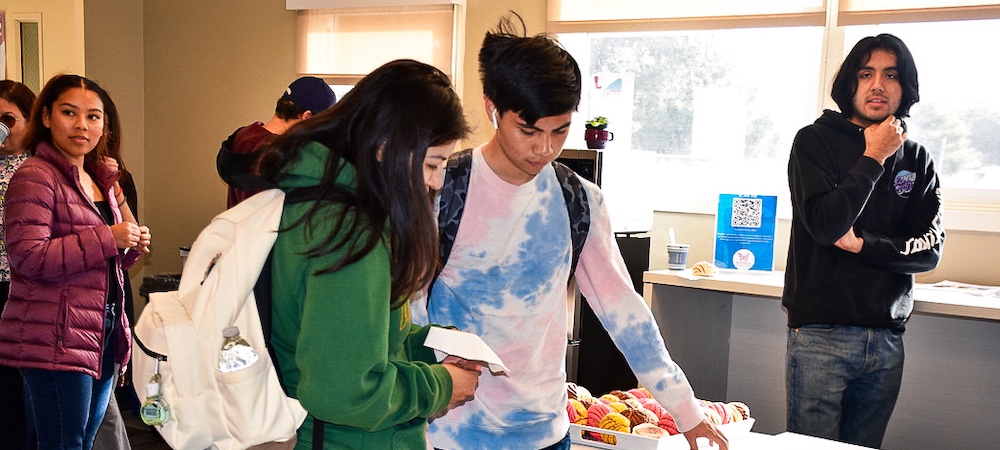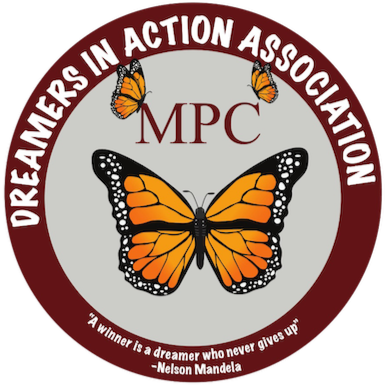
Stay Connected!

Campus Resources
Request Help: undocu@mpc.edu
Free Immigration Legal Services
Find Your Ally offers free immigration legal services and case support for students, staff, and faculty on California community college campuses statewide or virtually.
"Know Your Rights" Resources
The document titled "Red Card 7 x 2.5" from Monterey County provides a bilingual (Spanish and English) summary of constitutional rights for immigrants during encounters with immigration agents. It emphasizes the right to remain silent, the right not to open the door without a valid warrant, and the right to consult with an attorney before signing any documents. The card also includes a message to present to immigration agents, asserting these constitutional protections.
The URC has Red Cards in more than 16 languages for you. Please visit our office in the Business, Math, Computing Building #18, Room 104.
Solidarity Network Monterey County Response: Si ve a la Migra, Reportela! A community based resource that provides timely updates and reporting related to immigration enforcement activity (“la migra”) in Monterey County, along with information, referrals, and rapid response support to help community members stay informed and prepared.
The National Immigrant Justice Center's "Know Your Rights: If You Encounter ICE" page provides crucial information on preparing for and responding to encounters with Immigration and Customs Enforcement (ICE). It highlights individuals' constitutional rights, offers practical advice, and includes resources to help immigrant communities protect themselves.
The California Teachers Association's "Home Is Here" page offers resources and information to support immigrant educators, students, and families. It includes guidance on Deferred Action for Childhood Arrivals (DACA), "Know Your Rights" materials, and updates on immigration-related policies affecting California's educational communities.
The Monterey County "Know Your Rights" page provides residents and employers with immigration-related information and resources, including downloadable materials like "Red Cards" and guidance on handling warrants and subpoenas. It also lists upcoming events, such as the Salinas Immigration Forum on February 12, 2025, to educate the community about their rights.
The California Department of Justice's "Resources for California’s Immigrant Communities" page provides information on immigrants' rights, including access to housing, emergency medical care, and legal representation. It also offers guidance for immigrant students and families and tips to avoid immigration scams.

Dreamers in Action Student Association
Dreamers in Action helps create a safe and welcoming environment for every student no matter their residency status. Meet other undocumented students and allies in a safe space, and access tools for achieving your educational and personal goals through free informational sessions and workshops. Develop leadership skills and forge new connections at outreach events.
All undocumented students and allies are welcome at our meetings! For time & location, contact us: undocu@mpc.edu.
Understand the Differences: In-State Tuition vs. CA Dream Act vs. DACA
Immigrants Rising helps you make decisions based on your potential, not your perceived limits. Visit their website so you can see what’s possible at www.immigrantsrising.org
| Policy | In-State Tuition | CA Dream Act (Financial Aid) | Deferred Action for Childhood Arrivals (DACA) |
|---|---|---|---|
| Law | AB 540, as amended by SB 68, SB 1141 & AB 2000 | Executive Memorandum | |
| What It Does |
|
Allows individuals to receive:
|
|
| What It Does Not Do | Does not change their state residency status. |
|
|
| Who Can Apply |
Undocumented & DACAmented individuals, T and U visa holders, US citizens, & lawfully present immigrants that meet eligibility criteria. NOTE: Students with non-immigrant status (other than T or U visas) are not eligible under this pathway. |
AB 540 eligible individuals who are undocumented, DACAmented individuals, T and U Visa holders, U.S. citizens, and lawfully present immigrants who meet eligibility criteria. NOTE: Students with non-immigrant status (other than T or U visas) are not eligible under this pathway |
Currently, only individuals who had DACA in the past may submit a DACA renewal application. NOTE: People should speak with a legal services provider if they have questions about their specific situation. |
| Eligibility Requirements |
Student must complete both A & B Part A: Attend three years full-time or the parttime equivalent credits at a CA high school, adult school, Community College (credit or noncredit), or any combination of the above OR Three years of high school coursework and three years of total attendance in a CA elementary school or secondary school OR any combination of the two. Part B: Graduate from a CA high school; obtain a certificate of completion, GED, Hi-Set or TASC in CA; or attain an Associate’s degree from a CCC or fulfill minimum transfer requirements for UC or CSU |
For DACA eligibility, please go to ilrc.org/daca or uscis.gov For more information about renewing your DACA, use our Steps to Renew DACA flyer at immigrantsrising.org/renewdaca For DACA updates, go to immigrantsrising.org/daca
|